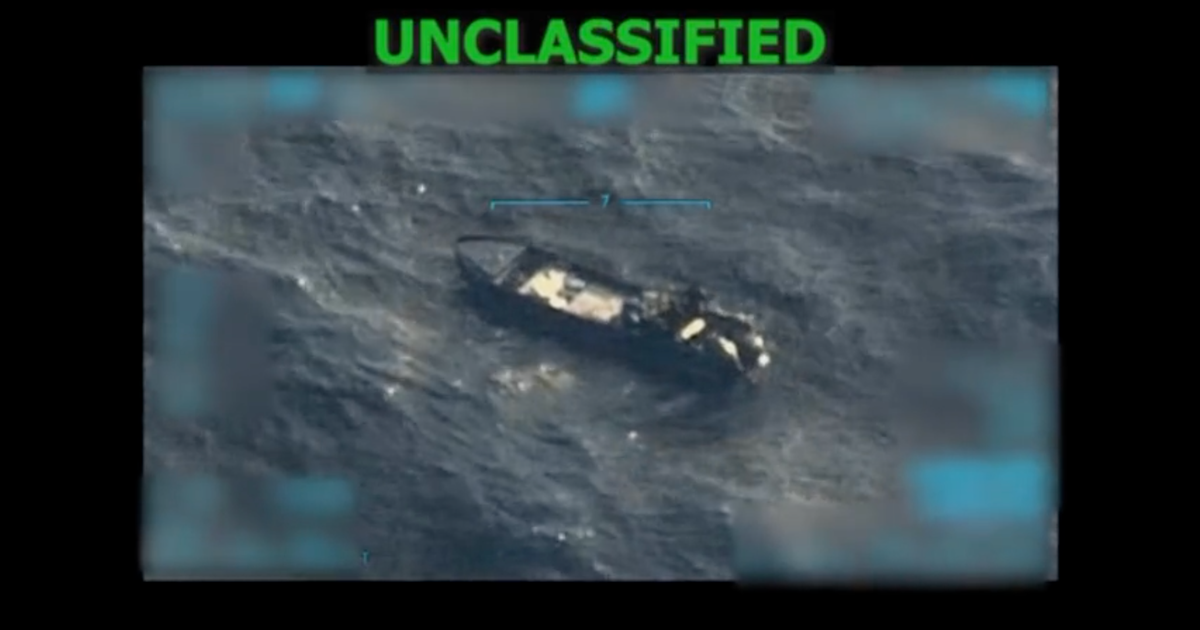
The president of Colombia alleged Wednesday that a boat struck by the U.S. military in the Caribbean Sea last week carried Colombian citizens, a claim a White House official called “baseless and reprehensible.”
The U.S. military has hit at least four alleged drug boats since last month, with the most recent known strike on Oct. 3 killing four “narco-terrorists” in a vessel off the coast of Venezuela, according to Defense Secretary Pete Hegseth. The Trump administration argues the attacks are necessary to halt drug trafficking, but critics say the administration lacks legal approval to carry out the strikes.
On Wednesday, Colombian President Gustavo Petro wrote on X: “Indications show that the last bombed boat was Colombian with Colombian citizens inside it.”
Petro did not specify the source of his information or why he believes the people on the boat were Colombian citizens, though he said he hopes their families come forward. The U.S. military has not publicly identified the boat’s passengers.
The White House quickly denounced Petro’s statement. A White House official told CBS News the U.S. “looks forward to President Petro publicly retracting his baseless and reprehensible statement so that we can return to a productive dialogue on building a strong, prosperous future for the people of [the] United States and Colombia.”
The White House official also described Colombia as an important U.S. partner despite “policy differences with the current government.”
The first leftist elected president of Colombia in decades, Petro has periodically clashed with the Trump administration. He denounced the strikes on alleged drug boats in a speech before the United Nations last month, and days later, he encouraged members of the U.S. military to “disobey” Mr. Trump’s orders during a New York protest — leading the State Department to announce it would revoke his visa. Meanwhile, the U.S. has accused his government of not cooperating on anti-drug trafficking efforts.
Petro’s most recent allegation adds to mounting scrutiny of the Trump administration’s campaign of strikes against alleged drug-carrying vessels in the Caribbean.
President Trump has cast the strikes as part of a broader gambit to combat drug smuggling and stem the flow of deadly narcotics into the U.S. His administration has designated several cartels and Latin American gangs as terrorist organizations, and since August, several U.S. Navy vessels have been stationed in the Caribbean as part of an anti-cartel mission — drawing stiff backlash from the Venezuelan government.
“Every one of those boats is responsible for the death of 25,000 American people and the destruction of families,” Mr. Trump said in a speech in Virginia marking the Navy’s 250th anniversary over the weekend. “So when you think of it that way, what we’re doing is actually an act of kindness.”
In a notice to Congress obtained by CBS News, the Trump administration described the passengers on one alleged drug boat as “unlawful combatants” — the term that President George W. Bush’s administration used to describe members of al Qaeda — and argued that the U.S. is in a “non-international armed conflict” with the cartels.
Secretary of State Marco Rubio told reporters Wednesday the attacks are “targeted strikes against imminent threats against the United States,” and the president does not need permission from Congress to carry them out.
But critics — including some members of Congress — have argued Mr. Trump is acting without legal authority, and have pushed the administration to provide evidence that the boats were carrying drugs or that the passengers were guilty of anything. Congress has not authorized the use of military force against drug cartels.
On Wednesday, Senate Democrats forced a vote on a resolution that sought to block further strikes. The measure failed 48-51, but it picked up support from Republican Sen. Rand Paul of Kentucky, a longstanding skeptic of military force.
“If anyone gave a you-know-what about justice, perhaps those in charge of deciding whom to kill might let us know their names, present proof of their guilt, show evidence of their crimes,” Paul said. “Is it too much to ask to know the names of those we kill before we kill them? To know what evidence exists of their guilt? At the very least, the government should explain how the gang came to be labeled as terrorists.”
